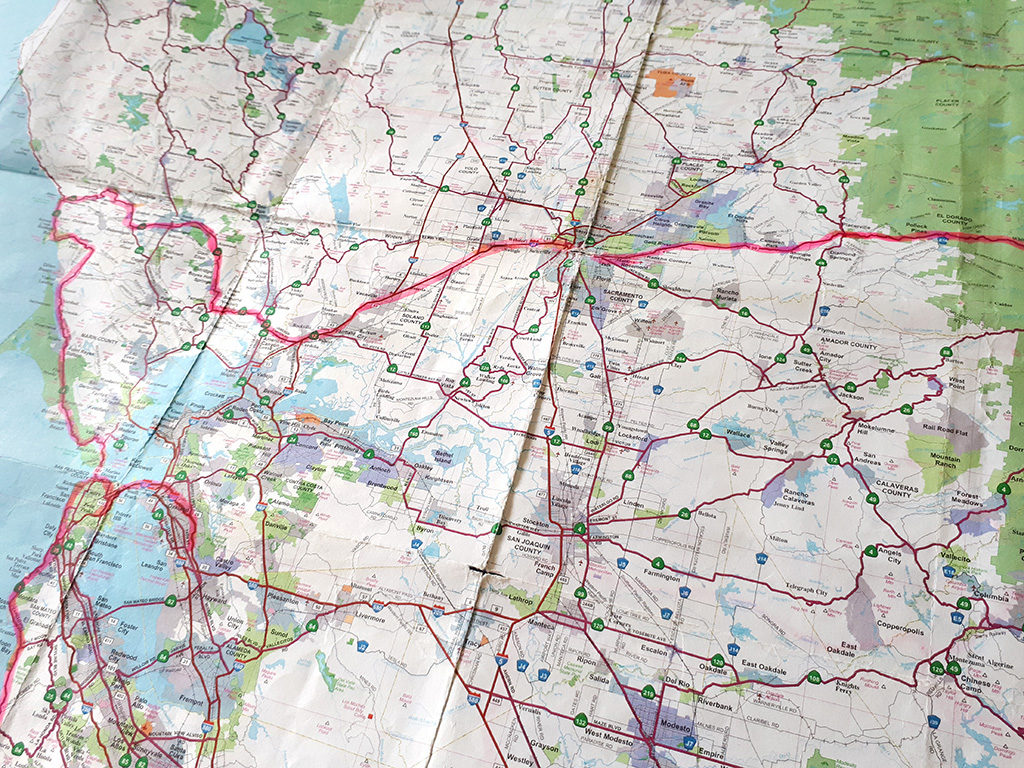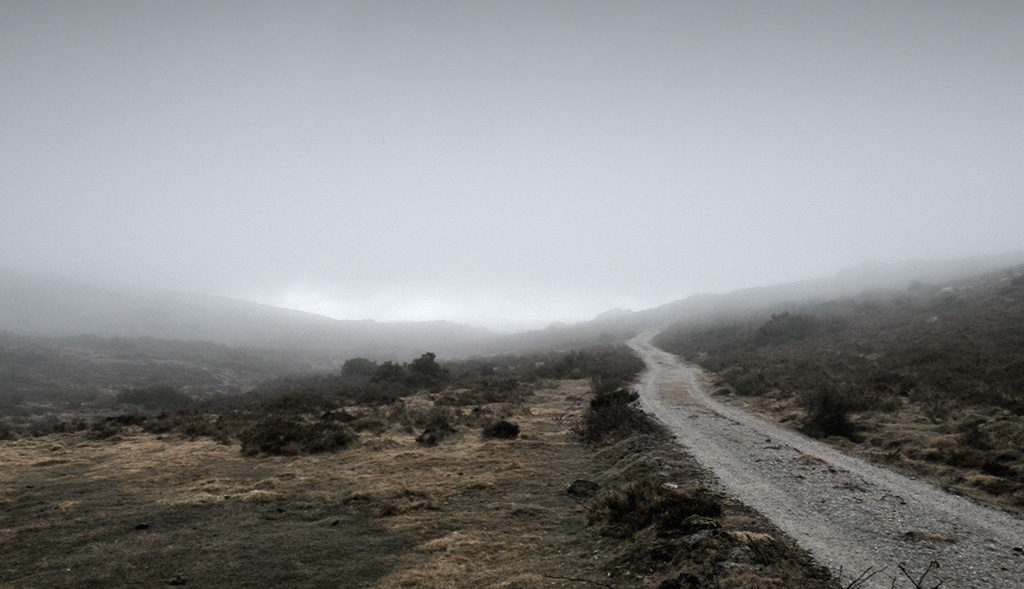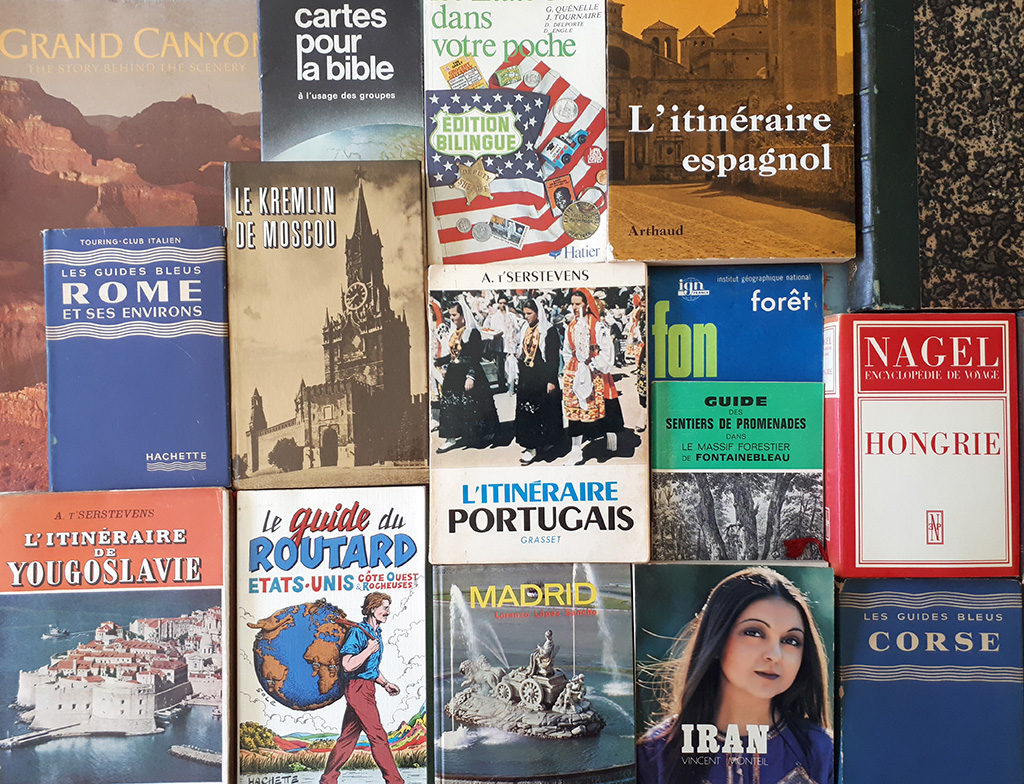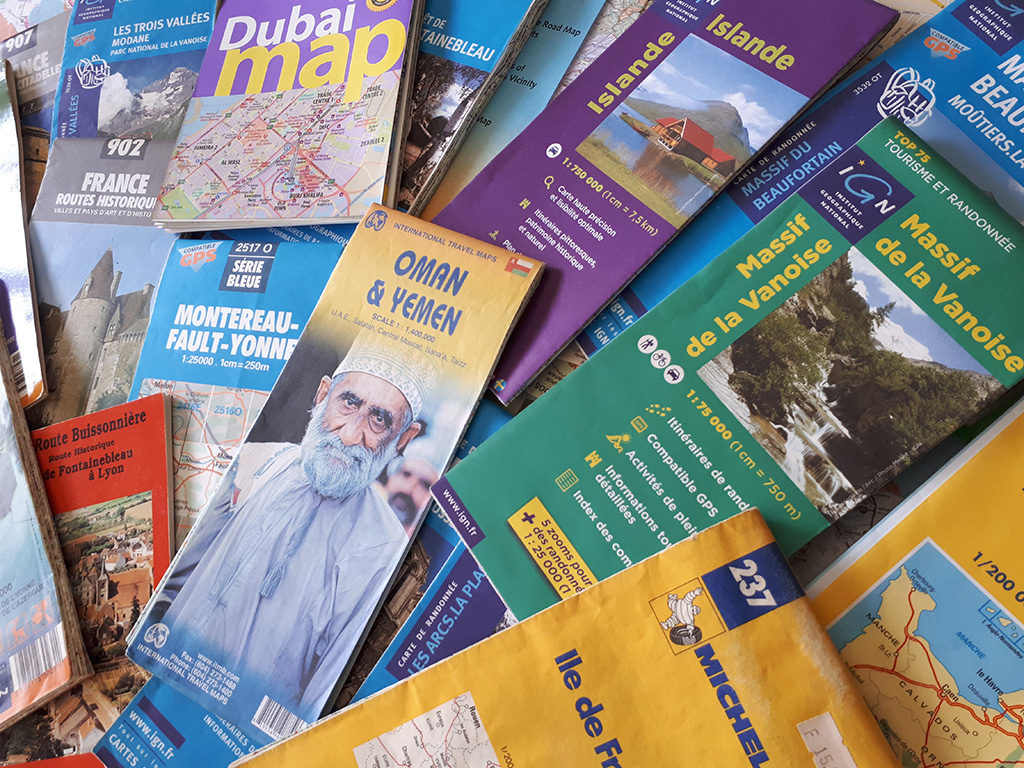In this article we will show how we research our own trips, and give you the tools necessary to prepare for yours in a similar way. Helping you making it a success…
Table of contents
- Choosing the right destination.
- Learning about where you’re going.
- Where to get the information ?
- Create an itinerary
- Conclusion
To most, preparing a trip consists of buying a travel guide and finding cheap hotel and travel fares at the last minute. It’s a shame, as every experienced traveler will tell you, the planning phase is half the fun. We couldn’t agree more, which is probably why we love spending all the time we can to get it right.
Now, in a fantasy world, we could simply tell you, like many other travel “specialists”, that all the planning you need is laid out for you in our own Travel Guide Section. Where you could choose your destination, read our recommendations and be on your way to the perfect trip. But that won’t happen. First, because this blog being still fairly recent, we haven’t yet covered the world, and as such are unable to provide you with all the insights on all the destinations you’re dreaming of. (One day maybe, but not today or even tomorrow !). But more seriously, because every journey is such a personal adventure, one that must reflect each traveler’s interests and style, that no one can prepare it entirely for you. You need to do the work !

Choosing the right destination.
We all have personal attractions. Sylvain Tesson is fascinated by Russia. Thierry Sabine was drawn to the deserts of Africa, as was Theodore Monod. Nicolas Bouvier talked beautifully about Asia, etc…
But with such a variety of stunning landscapes and diverse cultures in our world, the choices before us can be overwhelming. And as much as we would like to see it all, a few key factors besides your own instincts should help you narrow it down.
Budget and schedules.
As I just mentioned we all have dreams, but let’s face it, first and foremost, our choices have a lot to do with budgets and schedules. New Zealand is on everybody’s hot list these days. But if you live in Europe, have a short week to spare, and a rather tight allowance, it shouldn’t be considered an option. Yes it’s gorgeous, but between air travel and jet lag you won’t even notice !
Geo-political circumstances.
Yemen is (was!) a magnificent country, but right now is not the time to go find out ! Human stupidity has a tendency to conflict with our traveling desires, doesn’t it !
Let’s not be over cautious either, and miss on fantastic destinations because they are not politically aligned with our own values. Each time I said I wanted to drive across Iran, everybody at home went into panic mode. Turns out it is a very safe and welcoming place.
Weather.
Weather and seasons matter. Most try to find the “best” weather possible to travel. That usually means reasonably hot and sunny.
We tend here to believe a country is best seen when it has all the signification of its climate.
Indeed, many places on earth are tied to a particular weather, influencing its overall experience. To see Scotland on a hot sunny day is half the charm. A greyish sky filtering light through the heavy clouds of rain as the winds slap your face, is more likely to bring the best out the highlands. Do not be afraid of winter or rainy days.

All those examples are meant to be as obvious as possible to drive our point across, but should be applied to all considered destinations. What often sounds amazing on brochures, can end up a total miss if not properly scheduled.
Learning about where you are going.
Once you have decided on your dream destination, comes the time to learn a thing or two about it.
Practical Informations.
That’s the boring stuff, but all so necessary!
Visas, currency, medical requirements, local religious laws, required insurances, etc, you name it… In a nutshell, all the administrative stuff. We always go get it at the local consulate or tourism office. Either directly or through their website, double checking with a phone call it is up to date.
If your trip involves a motorized vehicle, get in touch with your local FIA certified agent and your insurance provider.
Lets get to the fun part now.
History.
Nothing helps you understand a place more than its past. History from bygone eras to yesterday’s news helps you understand the people, their customs, their culture, not to mention how to properly behave and interact with locals once there. Now some countries like France have a rich and well documented history. Other, more remote or less “established” places, require a lot more digging to find out what has been going on there. Searching for it and reading about it is not only fun, it’s educative, and helps navigate between the myths and the facts.
Geography.
Geography, matters. A lot ! Just a hint in case you’re doubting us on this; every respected traveler, explorer is a member of some prestigious geographical society. There is a reason for that.
Let’s look at Oman and its mountains sculpted in the crust of the earth for example. They’ll suddenly become far more appealing if you actually know how they came about. Study the reasons behind the natural wonders you came to admire will help you appreciate them even more. It’s called going underneath the surface.
Culture.
Local literature, cinema, music, art, architecture, you can’t understand people if you don’t care about what they do or create.
Now, If you’re planning on crossing the Rub al Khali, this one will be a short study ! On the other end, if you’re visiting France, it might be a life long journey !
Anyhow, knowing about Gothic architecture when visiting Notre Dame is always a better way to enjoy your visit.
Food.
Ok, being Vegan myself, I have to be honest and admit that I don’t spend too much time dwelling in local gastronomies, unless they are veggie oriented. My bad maybe, but what Georgian beef stew taste like is of little interest to me. That being said, their wines is a lot more exciting and is worth all mine and your attention. It is so sad to see foreigners looking for “safe” international fast food chains, instead of trying local dishes. If they only knew a little about the local cuisine, they wouldn’t be afraid of trying. Think of yourselves as Anthony Bourdain’s disciples on a culinary journey. Stay away from international fusion crap and dare the local delicatessens.
Language.
Don’t expect everybody to speak english. Instead prepare in advance and learn the very basics of the local language. It changes everything. No need to get fluent, just have a basic understanding. It breaks the ice with locals, it also helps finding your way and improvise on the course of your itinerary.
Where to get information?
Internet.
Internet, obviously is a fantastic tool for research. Beyond the basics of Wikipedia are many links for those in the hunt for detailed, well referenced articles on a wide variety of subjects, like the ones just mentioned above.
Travel fairs.
Every large city has one at least once a year. There is no better place to learn about countries or regions you didn’t even suspected, and get all pertinent informations about traveling conditions there. Don’t just take a flyer, sit down and ask all the questions that come to mind. Those people are here for you.
(We are going to do just that next week in Paris. Look for our feedback on that in a future article)
Travel guides.

It’s a booming market, and many are good. We look for those which offer more than just a list of curiosities and basic practicalities. We like more detailed cultural and historical descriptions, and for that nothing beats the older guides, those printed before the late seventies. As for myself, thanks to my father’s love for travel, and the fact that my Great-grand father published travel guides on his own in the late 19th century, our bookshelves are filled with many priceless volumes. Going through those pages offers a gold mine of informations you’d be hard pressed to find anywhere else. Yes, times have changed, cities have evolved, a lot of what is being described is often gone, yet, despite all of that, they bring a knowledge and a sense of details very few books can offer today.
Flea markets, garage sales, antique book dealers are a great place to shop for those, or even Amazon.
Specialty books and articles.
Let’s say you’re going to Portugal. Well, a book on Manuelin style would be a good investment. Going to Greece, how about greek mythology ? You get the point.
Creating an Itinerary.
Now that you have a good idea about what you want to see and know enough to make the most of it, it is time to put up an itinerary, linking all those points of interest in an intelligent way. It’s not only a question of schedule, but primarily finding the most scenic connections between each point, making the journey as interesting as the destinations.
The first thing to decide on is your mean of “Touring”, or in simpler terms your mean of transportation. Are you going to walk around, will you have to drive, take a train, or else. There is always a proper way to do things dictated by the geographical conditions. Let’s take the Oman trail for example, a 4×4 is the best option available to you to complete that tour. The Grand tour of California calls for a motorcycle. While circling around Paris natural surroundings should to be done trekking on small “sentiers”.

Next, grab a map or open Google Earth and study all possible options. Avoid freeways at all cost when creating a “trace”, one rich with back-up plans, potential diversions and a good level of flexibility, to compensate for the many unplanned circumstances you will encounter along the way.
As a matter of fact, one of the first things to do once you’ll reach your destination is to ask locals for advices – they should know better – and adapt your “trace” based on their feedback regarding local bars, restaurants, curiosities. You know, those not listed anywhere but which have all the local charm. They often reveal a lot more than a designated monument listed in an international guide.
Plan your time. Don’t stack it up ! Don’t cram it to the max ! Instead select just a few meaningful visits on your agenda.
Think of it this way: It can take an hour for you to see it, but it will take two hours to look at it, four hours to understand it, and probably the entire day to know it. To all those pretending to have visited the Louvre museum in one after-noon, you missed the point, you waisted your time ! You’re not pilling up curiosities, you’re learning a new culture. Take it slow !
Conclusion.
To sum it up, get your hands on as much as you can regarding your destination and learn all there is to know before you leave. Being prepared will make it a lot more rewarding, if not just more relaxing in the end.
Once there record what you see. Pictures of course, but also what you have learned, and most importantly, your impressions, your feelings, and how it has impacted you.
This is the way we do it.

I really appreciate the effort you have given to this post. I am looking forward for your next post. I found this informative and interesting blog. Thanks for these amazing tips.